Eating disorders are a serious problem that affects millions of people worldwide. They are not something that can be cured overnight. But it is possible to feel better with the help of psychotherapy and other coping strategies. Psychotherapists specializing in eating disorders offer many different treatments for their patients. This blog post will discuss the different types of eating disorders, how they manifest themselves, and what you can do to help with eating disorders.
Contents
- 1 What Are Eating Disorders?
- 2 What Are The Types Of Eating Disorders?
- 3 What Are The Symptoms Of Different Eating Disorders?
- 4 Diagnosis Of Eating Disorders
- 5 How To Deal/Help With Eating Disorders?
- 6 Psychotherapists On Dealing With Eating Disorders
- 7 Talking To A Professional
- 8 Psychotherapies And Treatment Options For Helping Eating Disorders
- 9 Coping Tips For Different Eating Disorders
- 10 Possible Ill-Effects Of Eating Disorders
- 11 Conclusion
What Are Eating Disorders?
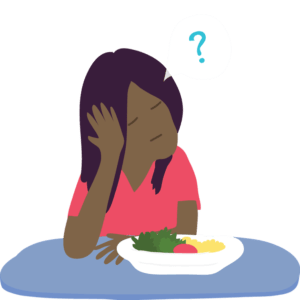
Eating disorders involve extreme disturbances of eating habits, which can cause health consequences for the sufferers. There are three main types: anorexia nervosa, bulimia nervosa, and binge-eating disorder.
These conditions have been shown to affect over 70 million people worldwide each year according to research, sample surveys, and studies. They can develop in both men and women but are most common in females.
Although eating disorders typically become evident during adolescence. They may not show up until much later or even earlier in life. Females tend to begin around age 11 while males do so on average at the age of 19. The symptoms for different types of eating disorders vary slightly.
What Are The Types Of Eating Disorders?
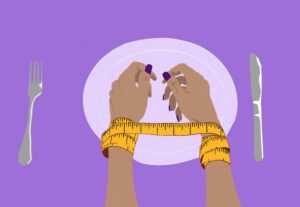
There are several different types of eating disorders that people may experience. The most common include anorexia nervosa, bulimia nervosa and binge-eating disorder (BED).
All three conditions fall under the general heading of “eating disorders” because they share a few important characteristics:
- Involve disordered eating patterns, such as not eating enough or overeating
- Can hurt physical and mental health
- Maybe difficult to overcome without support
However, the main difference between each condition is how the person experiences their symptoms. Below is a list and description of common eating disorders for you to refer to:
Anorexia Nervosa

Anorexia nervosa is characterized by an intense fear of gaining weight or becoming fat. Even though they are often very thin. People with this disorder often have a distorted view of their body shape and size and may see themselves as being overweight when they are not. They will often go to great lengths to avoid food and may exercise excessively.
Anorexia nervosa can cause a wide variety of physical problems, including heart problems, infertility, and organ damage. It is also one of the most deadly mental health conditions, with a mortality rate that is several times higher than any other psychiatric disorder.
Bulimia Nervosa
People with bulimia nervosa often binge on large amounts of food and then try to get rid of the calories by vomiting, using laxatives, or making themselves sick.
Binge-eating disorder is a similar condition to bulimia nervosa. However, it doesn’t involve attempts to compensate for overeating. But it has many of the same side effects as bulimia nervosa, such as weight gain and addiction to certain types of food.
Binge-Eating Disorder (BED)
Binge-eating disorder is the most common type and is characterized by episodes of uncontrollable overeating. On average, a person with this condition eats about the same number of calories as someone without it would in a whole day.
Other Types of Eating Disorders
There are other types of eating disorders that don’t fit neatly into the three categories above. These include:
Pica
A disorder characterized by cravings to eat non-food items like dirt or paint chips.
Rumination Disorder
In this type of eating disorder, people regurgitate food and then re-chew and re-swallow it.
Avoidant/restrictive food intake disorder (ARFID)
A condition that causes people to lose interest in eating or become full after only small amounts of food.
Orthorexia Nervosa
It is an unhealthy obsession with healthy eating. Such as eating processed foods, greasy chips, a high-cholesterol diet, etc.
NOTE: People with some types of personality disorders may also be at risk for developing an eating disorder. Such as those who are perfectionists or have low self-esteem. If you’re concerned about your eating habits or those of a loved one, it’s important to get help as soon as possible.
What Are The Symptoms Of Different Eating Disorders?
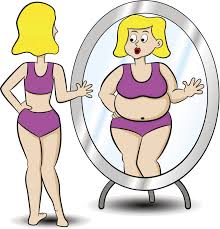
There are many different symptoms of eating disorders, which can vary depending on the type of disorder. However, some general symptoms:
- Include excessive weight loss or gain,
- Feelings of guilt or shame about food and eating,
- Irregular menstrual cycles in women,
- Problems with concentration and memory,
- Problems with sleeping,
- Feelings of being cold or a sensation of feeling “fat,”
- Anxiety and depression
In Addition
- Anorexia is characterized by weight loss through food restriction, distorted body image, extreme fear of gaining weight or becoming fat that results in self-starvation.
- Bulimia includes bingeing on large amounts of food followed by purging through vomiting, laxative abuse, or excessive exercise.
- Binge-eating disorder is characterized by recurrent episodes of binging without compensatory behaviors such as purging or excessive exercise.
NOTE: Anorexia sufferers are typically 18% to 20% below the average weight for their age and height.
Diagnosis Of Eating Disorders
Competent psychotherapists have a great deal of experience with these types of conditions. They can help you or your loved one get better as soon as possible.
- The first step is to provide an accurate diagnosis using modern technology.
- The next step is to create a personalized treatment plan that works for each person.
How To Deal/Help With Eating Disorders?
There is no one-size-fits-all approach to overcoming eating disorders, but there are a few general things that can help.
- Firstly, it’s important to seek professional help. This could mean seeing a therapist or counselor who specializes in eating disorders or attending a support group for people with eating disorders.
- Secondly, try to develop a healthy relationship with food. This doesn’t mean you have to become a vegan or start counting calories – it just means that you should eat in a way that makes you feel good and supports your health.
- Finally, be patient with yourself. Recovery from an eating disorder is a long process, and there will be times when you feel like you’re not making any progress. Remember that it’s okay to fall sometimes – as long as you keep getting back up.
NOTE: It is important to remember that you are not alone in this struggle, and some people can help you get through it.
Psychotherapists On Dealing With Eating Disorders
If you’re concerned that you or someone you know may have an eating disorder, it’s important to get help. Many people try to cope with these conditions on their own for years. But the problems are too serious to ignore.
So, there are many types of eating disorders that can appear different on the surface. But they all have similar symptoms and effects. These include depression, anxiety, self-image issues, or even physical illnesses caused by malnutrition. It is important to note that anyone – no matter their age – can suffer from an eating disorder.
Thus, there are many different ways to help with an eating disorder. Importantly, there is no “right” way to recover from an eating disorder. Everyone’s journey is different to help with eating disorders.
Talking To A Professional
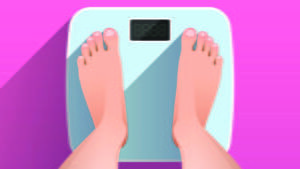
If you think you might have an eating disorder, it’s important to get help right away. Especially, anorexia is a serious illness that can be deadly if left untreated.
It is best to talk with someone who has experience dealing with these types of conditions. This could mean seeing a therapist or counselor who specializes in eating disorders or attending a support group for people with eating disorders.
Seek out professional help as soon as possible if you think you may have an eating disorder. Also, don’t be afraid to ask for help from friends or family members. It is with time and effort, you overcome your disorder and live a healthy, happy life.
Psychotherapies And Treatment Options For Helping Eating Disorders
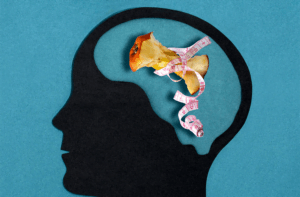
When it comes to eating disorders, there is no “one size fits all” treatment. The best approach depends on the type of disorder you have and your individual needs.
Some people may need medication to recover from their disorder – this could be antidepressants or even hormone therapy if they are dealing with issues like anorexia nervosa or bulimia nervosa.
Others may benefit from therapy or support groups. There are many different types of therapy available, and you may need to try a few before you find one that works for you.
Finally, it is important to remember that recovery takes time. Don’t be discouraged if you don’t feel better right away. Remember that you are not alone, and some people can help you get through it.
Coping Tips For Different Eating Disorders
There are many different coping tips & strategies (step by step) for different eating disorders. However, some general tips:
For Anorexia Nervosa
- Focus on accepting your feelings and thoughts without judgment,
- Challenge unrealistic or perfectionistic beliefs about yourself and food,
- Develop a personalized nutrition plan with a therapist or dietitian, and
- Practice self-compassion.
For Bulimia Nervosa
- Try to identify the thoughts and feelings that lead to binging and purging,
- Challenge distorted beliefs about food and weight,
- Avoid restrictive dieting and over-exercising,
- Develop a balanced nutrition plan, and
- Practice self-compassion.
For Binge-eating Disorder
- Try to identify the thoughts and feelings that lead you to binge eat,
- Try not to use food as a coping mechanism for stress or difficult emotions,
- Develop a personalized nutrition plan with your therapist or dietitian,
- Practice mindfulness when navigating social situations involving food, and
- Surround yourself with supportive people who will encourage positive change.
Possible Ill-Effects Of Eating Disorders

To give you an idea and make you understand that why it is important and necessary to take immediate steps to help yourself with eating disorders, some common ill-effects are as follows:
Psychological ill effects:
- Anxiety
- Depression
- Chronic fatigue
- Muscle weakness
- Difficulty concentrating
- Low self-esteem and body image disturbance
- Social isolation
Physical ill effects are as follows:
- Stomach pains or discomfort
- Constant feeling of being bloated or full, even after eating only a small amount
- Feeling cold most of the time, even when others complain about being hot
- Dizziness or lightheadedness
- Loss of interest in sex/decreased sexual desire
- Decrease or loss of libido (sex drive) for men and women.
Medical ill effects are as follows:
- Heart problems
- Stomach ulcers, irritable bowel syndrome (IBS), or other gastrointestinal issues
- Brittle bones due to calcium deficiency and lack of vitamin D from not getting enough sunlight. This can cause osteoporosis in older adults who have been suffering from anorexia for a long time.
NOTE: In addition to psychological and physical problems, Eating Disorders can also cause some social and legal issues as well.
Conclusion
It’s important not to feel ashamed about having an eating disorder – remember that this is a common problem and you are not alone. Seek out help from professionals and your loved ones, and be patient as you work towards overcoming your disorder. With time and effort, you can recover and live a happy, healthy life.
When there is a problem, do not hesitate to take the necessary steps towards solving it. In this way, you may learn how to deal with your disorder and return to living a happy life without any issues related to food or weight concerns. Eating disorders can be dangerous and even deadly if left untreated – so don’t underestimate their effects.
It is possible to overcome your disorder, even if it may seem difficult at first. With the help of loved ones and professionals, you can work towards overcoming this problem. Overcoming an eating disorder can take some time – but with effort and patience, you will be able to live a happier life without any issues related to food or weight.
If you are looking for affordable Online Counseling MantraCare can help: Book a trial therapy session


